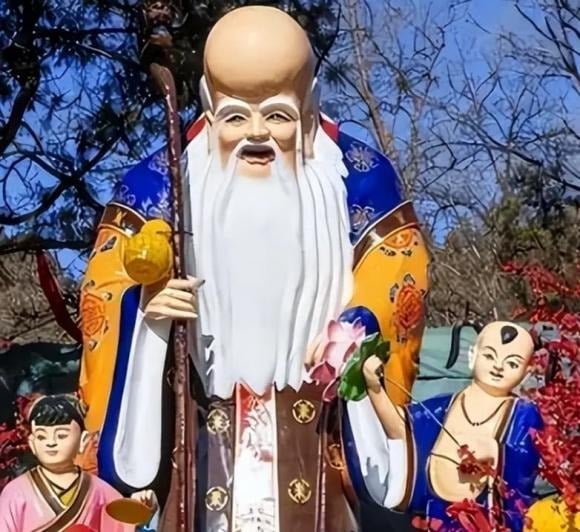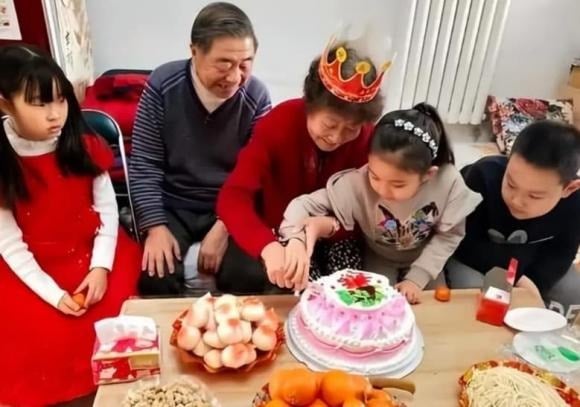In ancient times, it was believed that “birthdays require careful consideration” as there are certain ages considered inappropriate for celebrations. So, what are these ages and why are they deemed taboo?
What are the “taboo ages”?
According to traditional beliefs, there are three specific ages when one should refrain from celebrating birthdays due to their association with personal fate and family well-being. These ages are: 66, 73, and 84.
Age 73 is particularly significant as it marks the passing of Confucius, and age 84 was the age of Mencius’ death. Given the immense influence of these two sages in Chinese culture, it is thought that celebrating birthdays on these years could bring about misfortune.
As for age 66, folklore holds that this age harbors ill omens. Although the origin of this belief is unclear, many still avoid birthday celebrations during this year, often postponing them until the next year in hopes of better fortune.
Celebrating Longevity: Honoring a Long Life
In Chinese culture, the birthday of an elderly person is not just a personal commemoration but also an opportunity for the younger generations to show their respect and gratitude. The phrase “May you live as long as the Southern Mountain” is often used as a blessing, wishing the recipient a long life akin to the enduring presence of the majestic mountain.

Chinese culture values birthdays of elders as a way to show respect and gratitude.
Additionally, the phrase “May your happiness be as vast as the Eastern Sea” is often coupled with the previous blessing, symbolizing a wish for a life filled with happiness and robust health, just like the boundless East Sea.
During these longevity celebrations, the image of “Shou Xing,” a wise old man carrying a peach and known for his high forehead and benevolent smile, is often used as a decorative motif. He symbolizes longevity, while the peach represents immortality, and his high forehead signifies wisdom and virtue.
Three Taboos to Keep in Mind When Planning Birthday Celebrations
In addition to the taboo ages of 66, 73, and 84, there are a few other beliefs to consider when planning birthday celebrations, summed up in the following “three don’ts”:
Don’t celebrate your birthday while your parents are alive
Traditional Confucian filial piety dictates that children should not place too much emphasis on their own birthdays, lest they forget their mother’s hardships during pregnancy and childbirth. Therefore, birthdays are seen as days to remember and honor one’s mother, rather than indulge in extravagant celebrations.
This belief also serves as a reminder for children not to get too caught up in their own festivities and forget to care for and spend time with their aging parents.

Filial piety discourages birthday celebrations to prioritize honoring one’s mother.
Don’t celebrate birthdays on taboo ages: 66, 73, and 84
These ages are considered inauspicious and are believed to be linked to one’s fate and health, hence the avoidance of birthday celebrations during these years.
Don’t host grand birthday celebrations for those over 90
At this advanced age, one’s health is typically frail, and an extravagant celebration could be exhausting for the elderly individual. Therefore, it is advised to keep birthday celebrations low-key and intimate.
Evolving Perspectives on Birthday Celebrations
In modern times, with societal progress, many of these taboos are undergoing changes. Families are less stringent about following these rules, and parents often take the initiative to organize birthday celebrations for their children to create joyful memories. The taboos surrounding the unlucky ages are also becoming more relaxed.
Today, birthday celebrations tend to be more modest and intimate, usually consisting of small gatherings with close family members. Nonetheless, the essence of gratitude and respect for the elderly remains intact.
In conclusion, regardless of the era, birthdays serve as occasions to express love and appreciation, especially toward the elderly. The evolution of birthday celebrations in modern times hasn’t diminished traditional values but has instead made them more relatable to contemporary life.
Why Are Pink Roses the Official Flower of the Vu Lan Festival?
The donning of a rose during the Vu Lan festival is a symbolic gesture of gratitude and remembrance towards one’s parents, grandparents, and ancestors. It is a time-honored tradition where the rose serves as a physical emblem of love and respect, worn close to the heart as a reminder of the bond between generations.


































